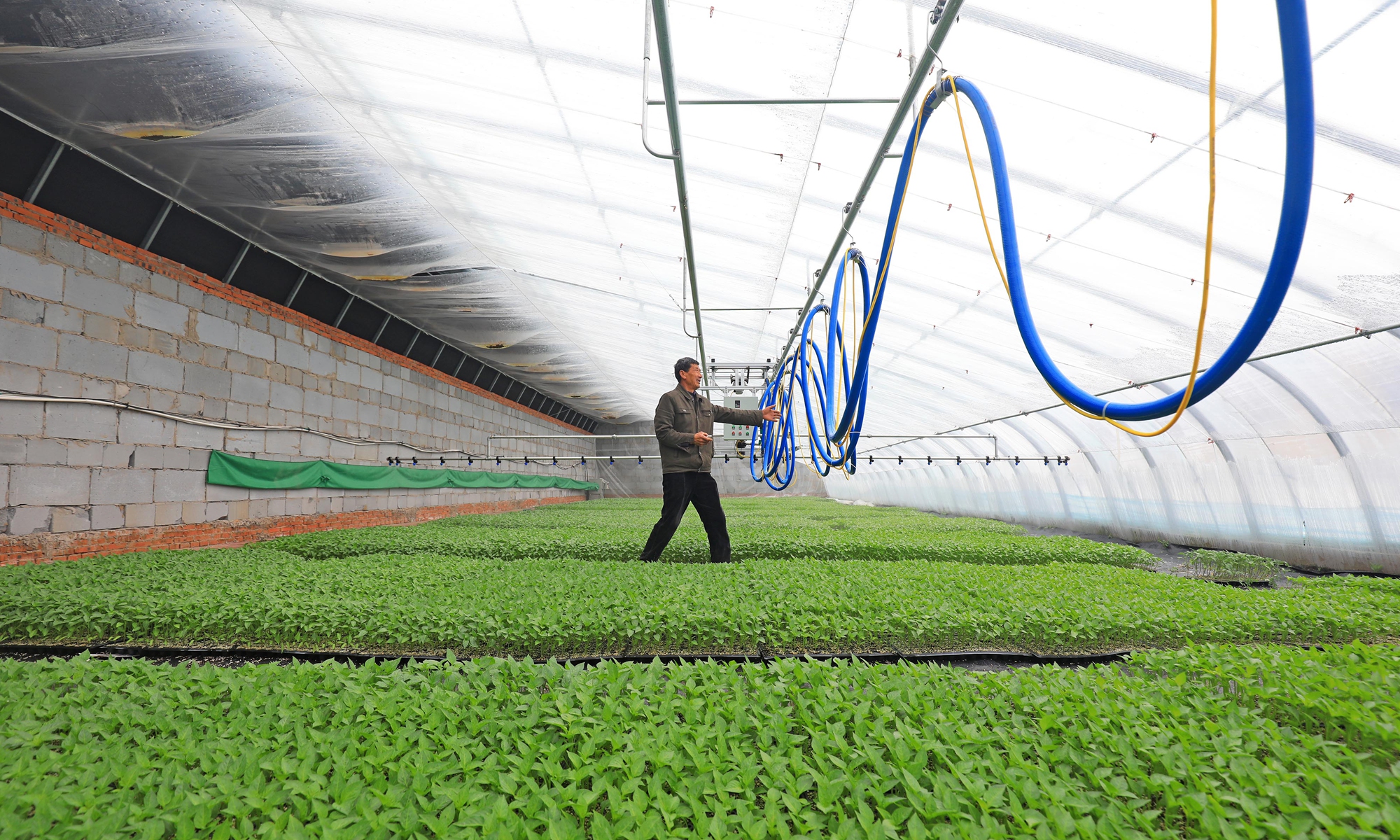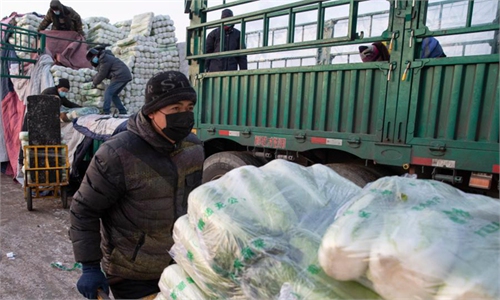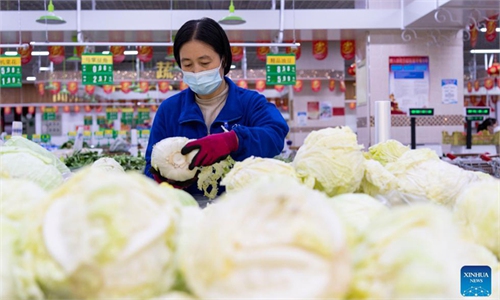
A farmer adjusts equipment in a smart greenhouse in Tangshan, North China's Hebei Province. The greenhouse is used for breeding vegetable seedlings. Photo: VCG
Following reports of soaring vegetable prices, China's Ministry of Commerce (MOFCOM) on Monday issued a notice, asking local authorities to take measures to ensure the supply and stabilize the prices of vegetables during the coming winter and spring season.
In the notice posted on its website, the MOFCOM urged local commerce departments to better coordinate with competent authorities to improve the interprovincial and local supply chains of vegetables, and set up daily price tracking mechanisms for vegetables and meat.
The National Development and Reform Commission also said last week it has taken multiple measures to stabilize vegetable prices after floods. Production is to be restored with fast-growing vegetables, and production and transportation of vegetables in cities hit by COVID-19 will be better coordinated.
Also in an effort to ensure supply and stabilize vegetable prices, the capital Beijing has waived transaction fees for vegetables and five kinds of domestic fruits at four major wholesale produce markets including the Xinfadi market, Beijing's largest, according to a statement on Monday.
Vegetable prices have soared in recent weeks, fueling fresh concern over food prices among Chinese consumers.
According to data from the Ministry of Agriculture and Rural Affairs, vegetable prices rose nationwide in October by 16 percent month-on-month. Prices for 26 varieties increased, with cucumber and spinach prices rising as much as 80 percent and 45 percent, respectively.
Agricultural trading companies are encouraged to enter into long-term supply contracts with vegetable, edible oil and poultry producers, the MOFCOM said.
The notice also asked the Northern parts of the country to complete on schedule their winter storage plans, and it encouraged people to stock up on daily necessities based on their need to cope with normal and urgent situations.
Supplies to areas under epidemic control measures should be swift and transparency on supply and prices are to be ensured to stabilize consumers' expectations.
It is believed that the vegetable crunch came after major northern vegetable-producing areas experienced extreme rainfall, which resulted in widespread flooding of vegetable crops.
Global Times


